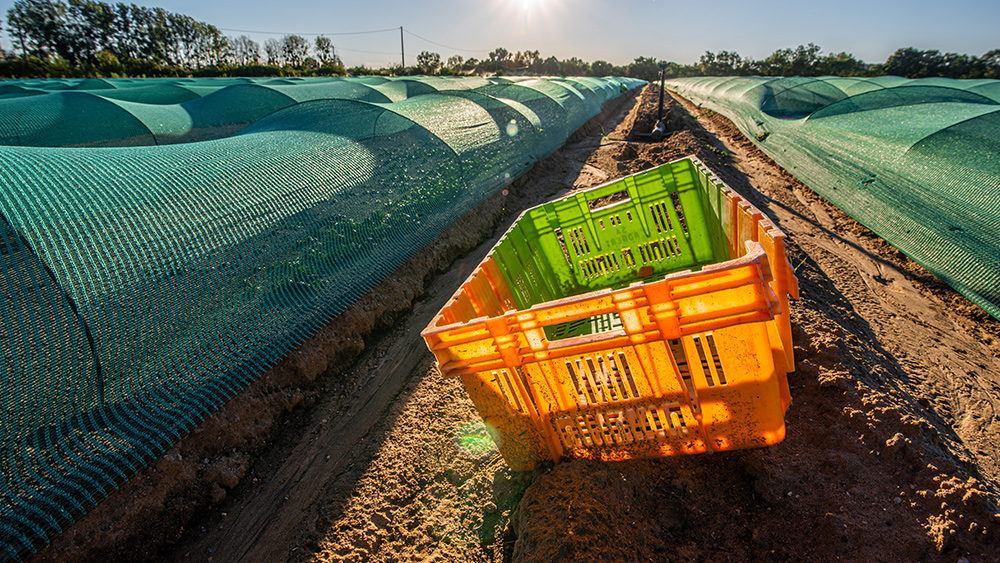
Advertisement
When it comes to agriculture, leaving things spotless as soon as the harvesting process is done may not be the best course of action, a new study suggests.
According to researchers from Louisiana State University (LSU) and Oklahoma State University, this is because tillage, or the act of digging and overturning soil in order to prepare it for the next planting season, may actually disrupt the microbial ecosystem living within it.
“Wheat and corn production leave behind residue. Common practices, like conventional tillage, are highly disruptive. The need to identify viable conservation practices is growing in importance,” Lisa Fultz, a researcher at LSU Agricultural Center, said.
According to the researchers, the breakdown and degradation of crop residue by soil microbes is an important part of the carbon cycle. The latter is the process in which the carbon stored by plants during their growth and development, gets consumed by microbes and then released back into the soil in a chemically stable form after the plants’ respective deaths and subsequent decomposition.
During the course of their research, the scientists found that fresh, green crop residue in no-till fields was easier to breakdown and that they effectively function as a rich nutrient source for the microbes that live within the soil.
The practice was also found to be more effective than other alternative methods, such as prescribed fire management.
Why are non-disruptive alternatives to tilling important?
Regeneration International, a nonprofit organization dedicated to the promotion of sustainable agriculture, noted in an article that the Earth loses roughly 23 billion tons of fertile soil every year.
At this rate, the group said, all fertile soil will be gone within 150 years, unless farmers adopt agricultural practices that can help restore and build soil organic matter, which is an essential factor in soil fertility.
According to the group, many of today’s industrial agricultural practices are actually lethal to soil fertility, such as deforestation and the excessive use of synthetic fertilizers and other toxic chemicals. One of the biggest contributors to soil degradation, however, is soil tilling.
This practice, a study from Iowa State University says, has a negative effect on soil quality, due to the fact that it actually accelerates surface runoff and soil erosion.
Not only that, but tilling also kills off the microbes and insects that live in the soil — a serious incident that could speed up the conversion of fertile farmlands into lifeless patches of land dependent on chemicals to ensure their productivity.
Tillage, the study added, also contributes to the deterioration in overall surface water quality.
According to the study, this is due to the fact that sediments dislodged during erosion often transport excess nitrogen and phosphorus from fields into lakes and streams. This, the study said, leads to a phenomenon called eutrophication, in which a body of water becomes overly enriched with minerals and nutrients. This over-saturation of nutrients then induces excessive algae growth, which often results in the fatal depletion of oxygen in the water.
What are the benefits of no-till farming?
Because of this, many agricultural experts are recommending that people shift to no-till farming, with its proponents touting its many benefits not just to the farmers, but to the environment as a whole.
Here are some of them:
No-till farming uses less fuel
When one adopts no-till farming, one only has to go over the field once to establish his crop, which drastically reduces both fuel and labor costs. This is in stark contrast to conventional farming, which usually entails multiple passes over fields, in order to do the same exact thing.
In addition, one would also need less equipment to operate, which then translates to additional savings, both in terms of purchases and upkeep.
No-till farming lessens soil compaction
Doing multiple passes over a field with heavy equipment continuously breaks up the soil structure. According to agronomy experts, this can lead to it becoming more compacted, which, in turn, can affect its overall quality.
Heavily compacted soils often have a reduced rate of both water infiltration and drainage, thereby making them less suitable for planting.
No-till farming leads to more fertile, healthy soil
As noted by agriculturists, since the soil in a no-till farm is not being stirred up or dug through constantly, the microorganisms living just underneath its surface remain undisturbed. This means that they are left free to break down organic matter — such as crop residue — and in turn, fix important nutrients that may be needed by whatever crop is going to be planted next in the fields.
No-till farming helps minimize evaporation
The moisture present in the soil of a no-till farm is often shielded from the elements. This, proponents of the practice have said, is the direct result of the crop residue acting as natural barriers and shields against the wind and sun, thereby preventing it from evaporation.
Farming does not have to be a resource-intensive and environmentally damaging endeavor – it can also be ethical, practical and sustainable.
Sources:
Advertisements







